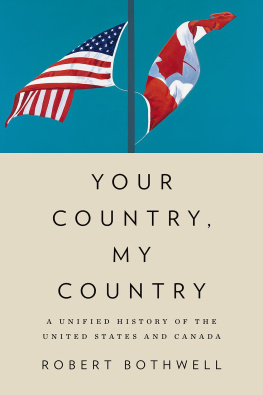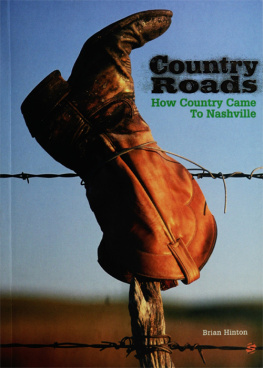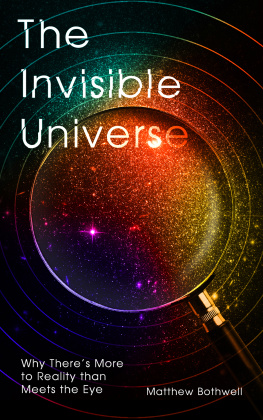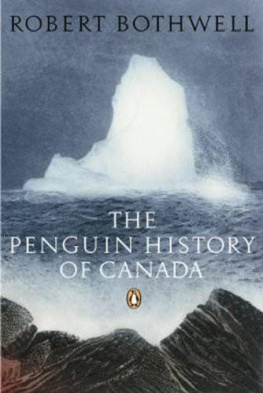Bothwell - Your Country, My Country
Here you can read online Bothwell - Your Country, My Country full text of the book (entire story) in english for free. Download pdf and epub, get meaning, cover and reviews about this ebook. year: 2015, publisher: Oxford University Press, genre: History. Description of the work, (preface) as well as reviews are available. Best literature library LitArk.com created for fans of good reading and offers a wide selection of genres:
Romance novel
Science fiction
Adventure
Detective
Science
History
Home and family
Prose
Art
Politics
Computer
Non-fiction
Religion
Business
Children
Humor
Choose a favorite category and find really read worthwhile books. Enjoy immersion in the world of imagination, feel the emotions of the characters or learn something new for yourself, make an fascinating discovery.
Your Country, My Country: summary, description and annotation
We offer to read an annotation, description, summary or preface (depends on what the author of the book "Your Country, My Country" wrote himself). If you haven't found the necessary information about the book — write in the comments, we will try to find it.
Your Country, My Country — read online for free the complete book (whole text) full work
Below is the text of the book, divided by pages. System saving the place of the last page read, allows you to conveniently read the book "Your Country, My Country" online for free, without having to search again every time where you left off. Put a bookmark, and you can go to the page where you finished reading at any time.
Font size:
Interval:
Bookmark:

Robert Bothwell


Oxford University Press is a department of the University of Oxford. It furthers the Universitys objective of excellence in research, scholarship, and education by publishing worldwide.
Oxford New York Auckland Cape Town Dar es Salaam Hong Kong Karachi Kuala Lumpur Madrid Melbourne Mexico City Nairobi New Delhi Shanghai Taipei Toronto
With offices in Argentina Austria Brazil Chile Czech Republic France Greece Guatemala Hungary Italy Japan Poland Portugal Singapore South Korea Switzerland Thailand Turkey Ukraine Vietnam
Oxford is a registered trade mark of Oxford University Press in the UK and certain other countries.
Published in the United States of America by Oxford University Press 198 Madison Avenue, New York, NY 10016
Robert Bothwell 2015
All rights reserved. No part of this publication may be reproduced, stored in a retrieval system, or transmitted, in any form or by any means, without the prior permission in writing of Oxford University Press, or as expressly permitted by law, by license, or under terms agreed with the appropriate reproduction rights organization. Inquiries concerning reproduction outside the scope of the above should be sent to the Rights Department, Oxford University Press, at the address above.
You must not circulate this work in any other form and you must impose this same condition on any acquirer.
Library of Congress Cataloging-in-Publication Data
is available
ISBN 9780195448801
ebook ISBN 9780190269418
1 3 5 7 9 8 6 4 2
Printed in the United States of America on acid-free paper
To my students, who have had to listen to so much of this.
many thanks are due to my indefatigable research assistants, John Dirks, Tina Park, Susie Colbourn, and Jenn Bonder, who from time to time had to streak away and find apparently crucial material. Special thanks and gratitude are owed to Ira Gluskin, whose generosity created the May Gluskin chair at the University of Toronto, on whose resources I drew in the composition of this book. Not only did it pay my expenses, but it allowed me to ignore entirely the time-wasting procedures that accompany petitions for research grants. This spared me weeks if not months of irritation and wasted time. To my editors, Jennie Rubio of Oxford University Press in Toronto and Susan Ferber of Oxford University Press New York, I am grateful for their patience, enthusiasm, and strict supervision. Any stylistic solecisms that survive are my responsibility alone. Finally to my wife, Gail, I am grateful for patience, endurance, and support during this process.
if there were ever a prize for the most apparently futile academic study, CanadianAmerican relations would be an earnest contender. Over time, whole forests, presumably Canadian, have been cut down and pulped to produce shelves of books and reams of articles on Canada and its great neighbor. Certainly Ford gave Canada exposure and raised justifiable questions about the people who elected him. These are not flattering questions but at the same time, as kindly Americans have pointed out, the same questions have frequently been asked about similarly buffoonish American politicians. This book attempts to answer some of these questions, and it takes as its starting point that sympathetic insightif youve got them, weve got them too.
Commentary on CanadianAmerican relations usually follows the curve of population. The ratio in population between Canada and the United States flops around ten to one, with the ten signifying the United States and the one, Canada. California alone has a bigger population than Canada. GDP is roughly twelve to one, varying with the exchange rate between the Canadian and American dollars, but of course always in favor of the United States. The national origin of the thousands of works or studies on CanadianAmerican relations is also between ten and twelve to onebut this time the ten represents Canada, and the one, the United States.
Volume is not the same thing as impact. Great Britain, France, Japan, and Israel (among many other countries) are better known in the United States than is Canada. Canada is a state of vagueness on the other side of a frontier, a place where (bad) weather comes from, and the home of the Toronto Blue Jays in baseball or the Vancouver Canucks and a few other hockey teams. Since 1999 it has occasionally been regarded as a potential source of terrorists slipping into the United Statesan unsought and unappreciated distinction. Taken together, weather and sports account for the overwhelming majority of references to Canada in the American media and in the American consciousness. Sports and weather data are embedded in a kind of cultural and economic soup, business excursions flavored with oil and sprinkled with moose and beaver, with a dash of Mountie-red for color.
In an age of mass communication and mass travel, fewer Americans visit Canada than they did in 1970, though in certain states or regionsFlorida for examplethe chances of meeting Canadians are fairly high. This is because although fewer Americans visit Canada, many Canadians visit the United States, despite the increased incidents of border theaterthe frontier rituals designed to make Americans and Canadians feel more secure in the face of a threatening world. Canada in the twenty-first century is also harder for Americans to get to than in the nineteenth or twentieth, and vice versa if you are traveling south.
Meeting Canadians is one thing; the chance of finding them memorable or even distinctive (unless they are French Canadian) is considerably less. It used to be that Americans might easily meet resident Canadiansthose who had crossed the border to live and (they hoped) prosper. As recently as 1970 Canadians were the third largest group of immigrants in the United States, as signified by border-crossers like John Kenneth Galbraith, Norman Jewison, Peter Jennings, Judith Shklar, Charles Krauthammer, Charles Bronfman, and, a bit more recently, John Candy and Justin Bieber;
Canada always projected an image to Americans that was wholesome, if more than a little dull. The phrase worthy Canadian initiative won a contest for the most tedious headline in an American newspaper. Dudley Do-Righta cartoon representation of a Canadian Mountiecavorted with moose and contended with villains, whom he usually bested, and usually accidentally, for Dudley was not too bright. There was a sense of superiority in American attitudes, just as in the reciprocal Canadian vision of America or Americans there was a thick vein of self-righteousness. But in the oblivion that usually covers Canada these are traits that only occasionally achieve recognition or even consciousness. A Canadian has to go a long way to violate these cultural norms before he, or occasionally she, is noticedas in the Rob Ford case, noted above.
The point is not that Canadas public image was different from that of the United States; it is that there was a public image, that it was consistent over time, and that the worst that could be said of it was that it was neutral or, on balance, positive. If Rob Ford resembles some (hopefully few) Americans, so does Dudley Do-Right. Some Canadian values, if there was such a thing, resembled some American values. More concretely, individual Canadians or groups of Canadians had the same thoughts on many issues as individual Americans or groups of Americans. They were citizens of different countries and members of distinct political systemsyet the formal structures of Canadian government and the political parties that ran the government were recognizable though not identical across the international border. And over many generations, since the eighteenth century in fact, similarities of political context and political culture were mirrored in economic thought, social organization, religious practice, and attitudes toward the world at large.
Font size:
Interval:
Bookmark:
Similar books «Your Country, My Country»
Look at similar books to Your Country, My Country. We have selected literature similar in name and meaning in the hope of providing readers with more options to find new, interesting, not yet read works.
Discussion, reviews of the book Your Country, My Country and just readers' own opinions. Leave your comments, write what you think about the work, its meaning or the main characters. Specify what exactly you liked and what you didn't like, and why you think so.







